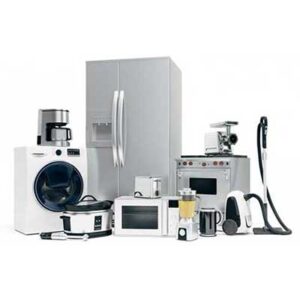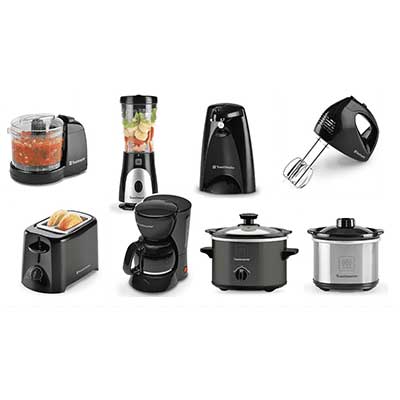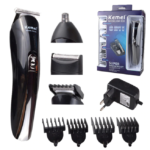Effective Tips to Prevent Funky Refrigerator Smells for a Fresh and Odor-Free Environment Leave a comment
For the preservation of food safety and a pleasant kitchen atmosphere, a clean and fragrant fridge is necessary. Nobody likes to open the refrigerator only to be confronted with a bad smell. Fortunately, you can keep your refrigerator smelling fresh and keep those unpleasant odours at bay with a little work and frequent maintenance. We’ll give you some useful advice in this post on how to stop refrigerator odours and make sure your food remains tasty and fresh.
1. Quickly Clean Up Spills: In a refrigerator, spills and leaks are unavoidable, and if they are ignored, they may cause odours to persist. Any spills should be cleaned up right away to stop them from soaking into the refrigerator’s surfaces. Clean up spills with warm water and a light detergent, and don’t forget to clean the detachable shelves and drawers.
2. Store Food Properly: Maintaining a fresh refrigerator requires careful food storage. To minimise cross-contamination and to stop pungent odours from spreading, store foods in airtight containers or sealed bags. Additionally, this will increase the food’s shelf life and preserve its freshness. To avoid their smells from contaminating other meals, be careful to firmly wrap pungent things like onions and garlic or keep them in a separate container.
3. Use Baking Soda: Baking soda absorbs odours naturally and may help your refrigerator stop smelling funny. On one of the shelves, put an open box or a little container filled with baking soda. To maintain the effectiveness of its odour-absorbing abilities, replace it every three months. Strong odours like fish and onions may be effectively neutralised by baking soda.
4. Regularly Clean the Interior: It’s crucial to clean your refrigerator often to keep it smelling fresh. Remove all shelves and drawers, then empty the contents. Clean the inside surfaces, such as the walls, shelves, and door seals, using a solution of warm water and mild detergent. Keep a watchful eye out for any cracks or crevices where spills or residue could collect. Before replenishing the refrigerator after cleaning, thoroughly dry the inside.
5. Inspect and Replace Expired Food: Food that has gone bad or expired may immediately start to give off foul odours. Check the contents of your refrigerator often, and throw away anything that has passed its best-by date or is otherwise spoiled. Pay attention to items that have been sitting in the refrigerator for a while and leftovers. You can keep your fridge fresh and odour-free by doing a quick inspection once per week or so.
6. Maintaining an organised refrigerator not only makes it simpler to locate what you need, but it also aids in preventing the growth of odours. Leave space between food products to allow for optimum ventilation and prevent cluttering the shelves. The danger of odours brought on by retained moisture is decreased by proper air circulation, which also aids in maintaining an ideal temperature.
7. Condenser Coils Should be Cleaned: The condenser coils are in charge of eliminating heat from the refrigerator. They may get clogged with dust and debris over time, which might reduce their effectiveness and lead to odour issues. For information on how to reach and clean the condenser coils on your refrigerator, see the user handbook. Your fridge will run more effectively and produce fewer odours if you clean it often, typically every six months.
8. Keep Pungent Foods Apart: Some foods have pungent smells that may readily contaminate other meals in the refrigerator. Store strong spices, condiments, and cheese in sealed containers or specific spaces to prevent this. These products may also be covered with airtight plastic wrap or aluminium foil before being put in the single door fridge.
9. Use Natural Odour Absorbers: Other natural products, in addition to baking soda, may assist in absorbing refrigerator odours. You may store activated charcoal in your refrigerator in a tiny container or fabric bag as a very efficient odour absorber. To get rid of bad odours, you may also use coffee grinds, citrus peels, or cotton balls soaked in vanilla flavour. For best effects, replace or renew these natural odour absorbers on a regular basis.
10. Inspect and Clean the Drip Tray: A drip tray is often installed below a refrigerator to catch moisture. This tray may collect food scraps and water, which might result in unpleasant odours. To find the drip tray and remove it for cleaning, go to the owner’s handbook for your refrigerator. Before putting it back inside the refrigerator, thoroughly clean it with warm, soapy water.
11. Defrost and Clean the Freezer regularly: If plugnpoint‘s refrigerator contains a freezer section, it’s crucial to defrost it often. Stale odours and decreased appliance efficiency might result from ice accumulation. Defrosting the freezer and cleaning it afterwards should be done under the manufacturer’s recommendations. To get rid of any remaining smells, clean the interior surfaces with a solution of warm water and baking soda.
12. Don’t Store Stinky Items: Some things are known for giving out strong odours that may fill the fridge. Items like unsealed pet food cans, rancid leftovers, and highly scented cleaning supplies should not be kept in the refrigerator. To stop odours from spreading, store these goods in a separate room or dedicated storage location.
13. Make Sure the Refrigerator Door is Always Properly Closed: This is one of the easiest methods to keep the refrigerator from smelling bad. Avoid keeping the refrigerator door open for long periods of time since this may let warm air and humidity in, which can foster the growth of odours. Teach your family members to quickly shut the bottom mount fridge door after usage.
Keep in mind that regular maintenance and excellent hygiene practices are essential to maintaining your refrigerator odor-free and fresh-smelling. You may have a fresh, odor-free refrigerator that maintains the nutritional value and flavour of your food by putting these suggestions into practise and making them a regular part of your routine.












